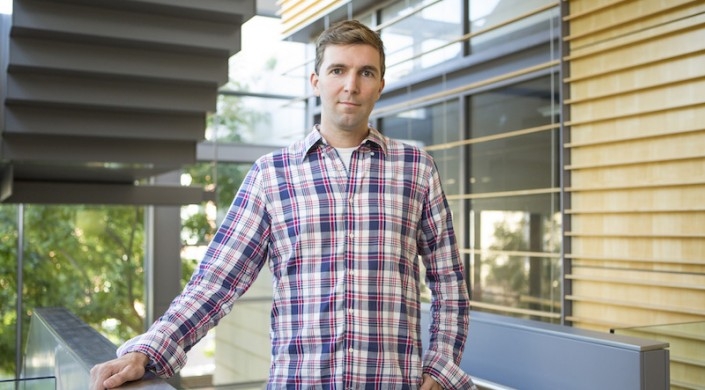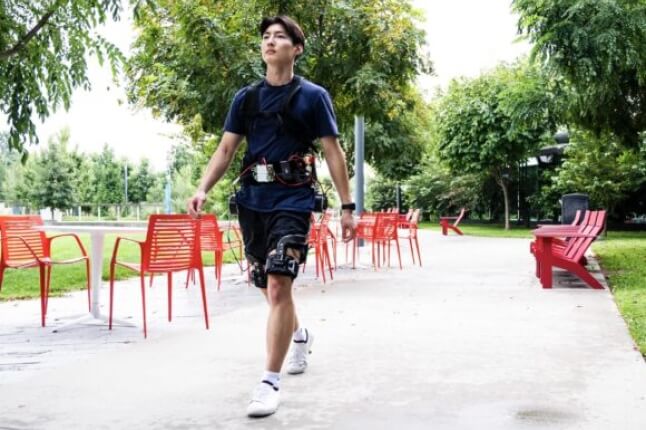News
Robert J. Wood, the Charles River Professor of Engineering and Applied Sciences. (Image courtesy of Eliza Grinnell/Harvard SEAS)
Robert Wood, Charles River Professor of Engineering and Applied Sciences at the Harvard John A. Paulson School of Engineering and Applied Sciences, has been awarded the Max Planck Humboldt Medal from the Alexander von Humboldt Foundation and the Max Planck Society for his contribution to soft robotics. The prestigious prize, funded by the German Federal Ministry of Education and Research (BMFT), recognizes extraordinary scientists with outstanding future potential. The medal is endowed with an award totaling EUR $60,000 and the winner is invited to carry out research projects of his own choice in cooperation with specialist colleagues in Germany.
Wood is a founding Core Faculty member of the Wyss Institute and a Leader of its Bioinspired Soft Robotics Initiative.
As an electrical engineer and roboticist, Wood has made numerous critical contributions to the field of robotics, and specifically to the subfield of soft robotics that focuses on the design of robots using highly compliant materials. Inspired by the ways in which living organisms move and adapt to their surroundings, soft robots have the potential to be used in many real-world applications that rigid robots are not suitable for. Wood and his team at Harvard’s Wyss Institute and SEAS have worked out some of the basic engineering principles for the construction of soft robots at different scales and with different functionalities. These are key to creating soft robots with a much broader range of abilities in the future, including devices that can grasp and manipulate items with dexterity resembling that of the human hand, or that carry out a variety of tasks at different scales or in challenging natural and unstructured environments.
With a highly multidisciplinary team, Wood has already developed soft robots that, for example, function as artificial muscles, able to grip and lift objects with many times their own weight, small soft endoscopic devices for potential use in surgeries and industrial micromanipulation, and soft gripping devices for deep oceanic research that can be operated remotely to collect fragile specimens. His team increasingly integrates soft robots with new sensor technologies to make them responsive to different control or environmental stimuli, and actuator technologies that rival the remarkable abilities of muscle.
“I am deeply honored to have been awarded the Max Planck-Humboldt Medal and I hope this will help to establish close collaborations with German robotics groups who have complimentary research interests in the field of soft robotics,” said Wood. “For example, we hope to work with the group of Prof. Dr. Oliver Brock at the Technical University of Berlin, a leader in soft robotics and specifically in robotic manipulation using soft hands. Forming a collaboration could help us formalize device and algorithm designs that may enable soft robots with human-level dexterity across a range of objects."
Cutting-edge science delivered direct to your inbox.
Join the Harvard SEAS mailing list.
Press Contact
Leah Burrows | 617-496-1351 | lburrows@seas.harvard.edu



